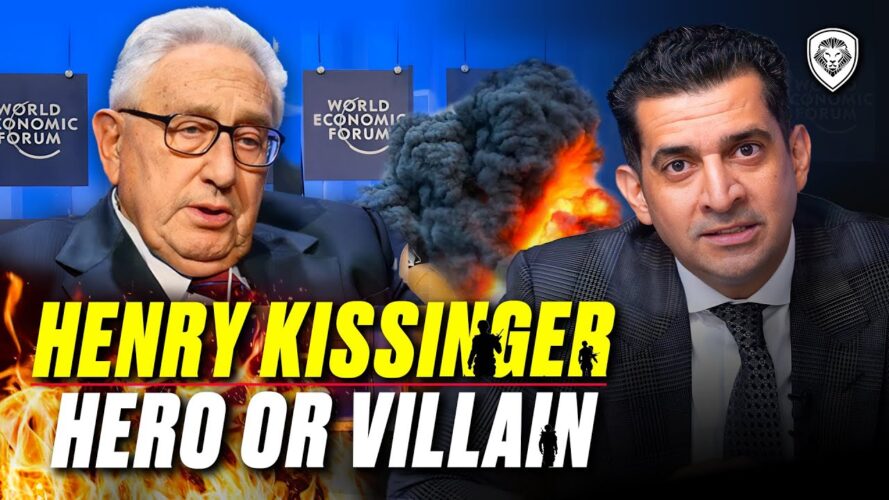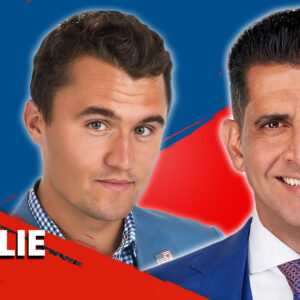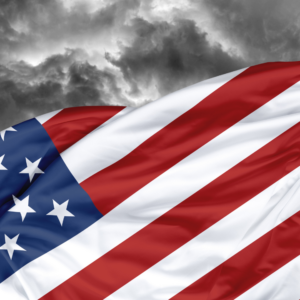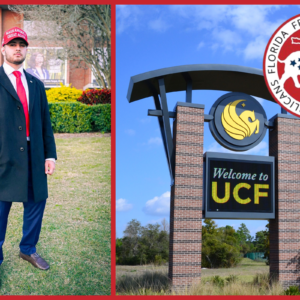Patrick Bet-David discusses the incredible life and accomplishments of the late Henry Kissinger, including his role in the trade deal between the U.S. and China, the role he played in negotiating the petrodollar, ending the Vietnam War, and more.
Patrick asks the question: Was Kissinger ultimately a hero or a villain?
Kissinger was a complicated individual. While on the one hand he was witty and charming, a man with a silver-tongue who could disarm antagonistic journalists with one-liners (see our article on his top 10 quotes here), he was also an orchestrator of mass carnage who was pursued by war crime courts for much of his life. While he combatted international socialism on a mass scale, he was also the facilitator of much infrastructure that would create modern globalism, such as the World Economic Forum (WEF). And yet he had humility and, best of all, a brain, and was able to pause at the end of his life and wonder if the global system he and his compatriots set up was worth it.
Learn the benefits of becoming a Valuetainment Member and subscribe today!
Henry Kissinger (born Heinz Alfred Kissinger) was born on May 27, 1923, to a German-Jewish family in the town of Furth, a Bavarian municipality just outside of Nuremberg. His family picked up everything and left for the United States in 1938 to escape Nazi persecution.
Henry served in the U.S. Army during World War II as a German interpreter, and went on to serve in the postwar American military government established in his war-torn home country. After returning to the U.S., he enrolled in Harvard University and obtained a bachelor’s degree in 1950 and a PhD shortly after in 1954. His bachelor’s thesis was so long that Harvard had to impose a word count for all future students in his wake.
Kissinger began teaching at Harvard in 1954, was elevated to professor of government in 1962, and directed Harvard’s Defense Studies Program from 1959 to 1969. While he was directing, he was also consulting on National Security matters for various U.S. agencies during the Eisenhower, Kennedy, and Johnson administrations. Kissinger made a name for himself opposing Eisenhower Secretary of State John Foster Dulles’ policy of nuclear “massive retaliation,” promoting instead a strategy of “flexible response” involving tactical nuclear weapons, conventional forces, and weapons technology development insofar as it was what a pragmatic approach called for.
Kissinger’s prestige as an eminent political strategist caused New York Governor and presidential candidate Nelson Rockefeller to recruit him as an advisor.
Thus began Kissinger’s formal political career. He worked as a consultant for various government agencies specializing in foreign policy, including the National Security Council, the State Department, and the Arms Control and Disarmament Agency. In 1968, President Richard Nixon picked Kissinger to be his National Security Adviser, and then broke precedent by appointing him to serve as Secretary of State while letting him retain his former role. Kissinger remained in both jobs after Nixon was replaced with President Gerald Ford following the Watergate scandal. Kissinger served as head of the National Security Council from 1969-1975 and as Secretary of State from September 1973 to January 20, 1977.
During the Cold War, it was uncertain if China would side with the Soviet Union. Even though China had a communist revolution after WWII, they did not see eye-to-eye with the Soviets. America’s foreign policy strategy was to prevent an alliance between them from occurring so that the West and forces aligned with capitalism would not be outnumbered. To this end, Kissinger successfully convinced CCP Chairman Mao Zedong to open trade and diplomacy up with the United States. Kissinger made a secret trip to China in 1971, and returned a year later to lead Nixon’s historic visit. Connecting China economically to the world market changed modern history forever.
Kissinger also held secretive negotiations with North Vietnam representatives such as Le Duc Tho beginning in 1969. He completed peace negotiations with Le Duc Tho in 1972, but these efforts eventually turned up dry. Because of this Kissinger called for a bombing of North Vietnam in Dec. 1972 in what became known as the “Christmas bombing,” but stopped it when diplomatic progress was being made with representatives in Paris. By Jan. 1973, Nixon ended all military action against North Vietnam and then a cease-fire agreement was reached, including plans for the withdrawal of U.S. troops and a permanent peace deal between North and South Vietnam, which became known as the Paris Peace Accords.
Watch the rest of the video below to learn about Kissinger’s involvement in the end of the petrodollar.


















Add comment